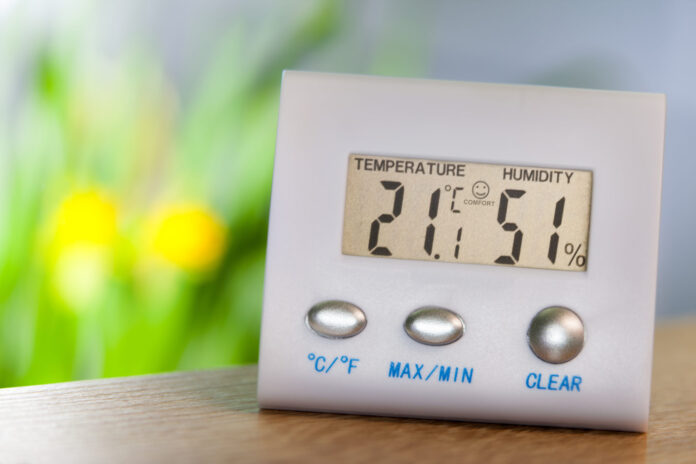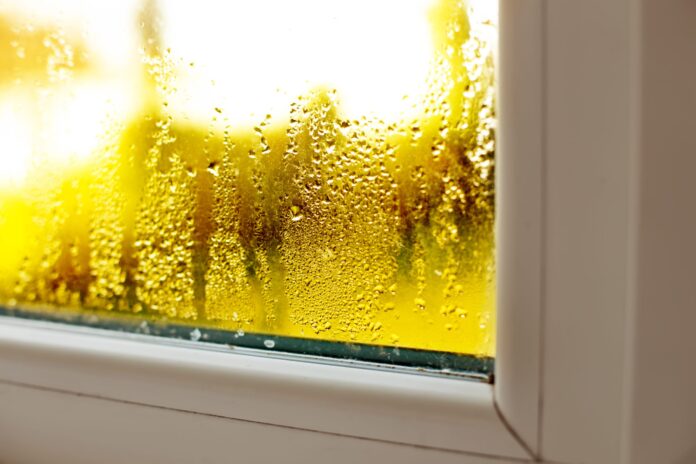
Excess humidity is a problem most Canadian face, especially during the peak of winters and summers.
Since you’re reading this, chances are, you’re in the same boat as most of your fellow Canadians. So, can high humidity actually cause health issues? As it turns out, yes, it can, and the health risk can be severe.
When we think of humidity, we don’t necessarily pay much attention. It’s just some extra water in the air; how bad can it be? Unfortunately, it can be–and in the long run, terrible for your health. Anything in excess of scarcity is usually not a good thing; the average is safe for a reason.
The same is with humidity. High levels can cause several health problems ranging from skin issues to even dehydration–ironic but true.
Okay, but How Much is Too Much?

According to Health Canada, your home’s relative humidity should not fall below 30% or go above 55%. When it falls below the lower limit, it can cause different skin and respiratory issues, while above the higher limit, mold, bacteria, and viruses can start spreading. This is especially true for urban regions where people mostly stay indoors, getting trapped with excess moisture and the allergens that grow because of it.
Cities have their advantages. According to Paradise Development one of them is having relatively lower outdoor humidity than rural areas; however, since people mostly stay indoors and with their windows shut, they trap the moisture resulting from indoor water use, which increases humidity levels.
What High Humidity Levels Can Do to Your Health

1. Cause You to Dehydrate
Yes, it seems counterintuitive, but having too much moisture in the atmosphere can actually backfire. It can interfere with the natural cooling mechanism of your body, leading to dehydration. When the relative humidity inside your home is high, it makes the temperature feel hotter than it really is. You may see 70° F on the thermometer on a hot day of July, but over 65% humidity can make it feel like 90° F.
This means your body will sweat more than it should cool down, but unless you chug gallons of water daily, you’ll start experiencing dehydration. So with high humidity levels, the higher your indoor temperatures are, the more dehydrated you’ll be.
Furthermore, all that excess sweat on your body will come with minerals and salts that are essential to your health. If this happens regularly, symptoms like headaches, muscle cramps, dizziness, light-headedness, and increased heart rate become prominent.
2. Dermatitis & Asthma Issues

Skin conditions like eczema or other dermatitis forms often are exacerbated with humidity and temperature changes. When there’s high humidity in summers, your body produces more sweat, leading to itchiness, rashes, and skin irritation because your sweat glands get clogged.
Furthermore, people with asthma need to be very careful about maintaining normal humidity levels. High moisture in the environment can increase the number of airborne pollutants, irritants, and allergens, which you’ll be exposed to on a daily basis.
And if the temperatures are also high, your airway resistance will increase, making it difficult for you to breathe, leading to coughing and worsening of other asthma symptoms.
3. Increased Allergies
High moisture levels in your home can increase liquid mucus in your throat and nose. This happens because the humidity in the air loosens the built-up crusty mucus in your airways, causing phlegm, post-nasal drip, runny nose, and sneezing.
Although you may take them as temporary allergic symptoms, these can be chronic and mainly brought on by indoor environment changes. So, for that reason, maintaining a good atmosphere with normal humidity levels is crucial.
4. Poor Quality of Sleep

Whether it’s too little or too much, humidity can obstruct your beauty sleep. When the moisture levels increase, the water vapors stay longer on your skin, causing clamminess and discomfort. And if you pull off the covers, the same vapors will start cooling you down, leading to you pulling the sheets up again.
This cycling of two extreme temperatures will create a tug of war between you and the blankets, leaving you tossing and turning throughout the night. You will not be able to stay in the REM (Rapid Eye Movement) phase—the most crucial part of a fulfilling sleep, which will significantly lower your sleep quality.
Some Common Causes of High Levels of Indoor Humidity

- Not Enough Ventilation: Regulation of air from inside to outside of the home is imperative to eliminate that excess moisture build-up. Lack of fresh air will cause the organic and chemical pathogens to skyrocket, leading to health issues discussed above.
- Oversized AC: This is more common in homes than you might think. Builders often go wrong with assessing the air conditioning needs and end up installing those with more power than needed. As a result, the AC unit goes to standby faster and more frequently because adequate temperate is achieved quicker. This doesn’t allow the AC enough time to remove excess humidity from the environment.
- Excess Indoor Water Use: If you enjoy long showers, then you must’ve noticed how humid your bathroom becomes after you are done. Plus, the use of water in the kitchen and washing area also contributes to an increase in humidity. All of that excess moisture has to go somewhere, so it lingers inside your property for days. This, coupled with poor ventilation, is just what’s needed to create an optimal breeding ground for allergens, mold, and pollutants.
Dehumidify Your Property to Stay Healthy

You may not realize the harmful effects of excess moisture now, but in the long term, you will. So try to keep your windows open, especially after indoor water use like showering, doing the dishes, or washing clothes.
Also, try to hang your clothes in an open area to dry so the moisture doesn’t come back inside the house. You can also use a dehumidifier to maintain optimal moisture levels and stay healthy.











